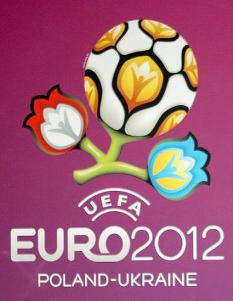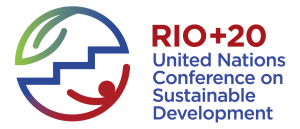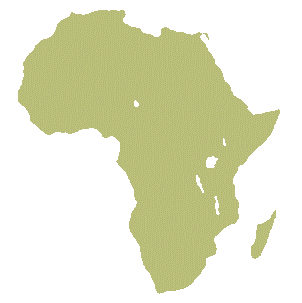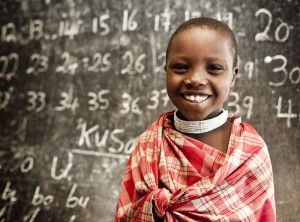

Global Citizenship blog
 The Euro 2012 football competition final rounds start in Poland and Ukraine tomorrow, and offer great opportunities for some more learning about global citizenship. Teams of players from many European nations (sadly not Scotland) and thousands of back-up staff and supporters will enjoy two weeks of top class sport. Details of the fixtures schedule, and coverage of the competition are on the BBC website among others.
The Euro 2012 football competition final rounds start in Poland and Ukraine tomorrow, and offer great opportunities for some more learning about global citizenship. Teams of players from many European nations (sadly not Scotland) and thousands of back-up staff and supporters will enjoy two weeks of top class sport. Details of the fixtures schedule, and coverage of the competition are on the BBC website among others.
Thousands of school pupils will have the additional benefit of learning new things in areas such as sport, health, Europe, travel, countries and languages - but also in less obvious areas such as literacy skills. An article in The Guardian describes how students can be inspired to read more. Teachers could also initiate lessons about media coverage and bias.
For themes around global citizenship, there are interesting discussions to be had about the environmental impact of thousands of people travelling from their homes to Eastern Europe, the issue of diversity and possible racism and violence at the venues, and the labour issues around production of balls and strips. One example: a teaching resource about football, fair trade and literacy.
Enjoy the games!
More Each year Refugee Week grows and increases in profile, making its mark on the UK’s cultural calendar. This year’s theme Spirit captures:
Each year Refugee Week grows and increases in profile, making its mark on the UK’s cultural calendar. This year’s theme Spirit captures:
Refugee Week is all about having fun, broadening horizons and breaking down barriers. Every June the week long UK-wide festival of arts, cultural and educational events celebrates contributions refugees have made to the UK, and promotes understanding about why people seek sanctuary.
Click here to see the exciting programme of activities and events for 2012>>
MoreLatest: Join our Glow meet live from Rio+20 from 11am to 12pm on Tuesday 19th June.  Put your questions to Stewart Stevenson MSP, Minister for the Environment and Climate Change, who will be attending as part of the official UK delegation. Share your green dreams and vision for a better future for all the world’s people.
Put your questions to Stewart Stevenson MSP, Minister for the Environment and Climate Change, who will be attending as part of the official UK delegation. Share your green dreams and vision for a better future for all the world’s people.
Between 20-22 June 2012 world leaders will gather in Rio De Janeiro for crucial talks at the United Nations Conference on Sustainable Development. The conference, referred to as Rio+20, will mark 20 years since the historic Earth Summit in the same city in 1992 which put issues such as climate change and the protection of biodiversity on the map and gave birth to Agenda 21 – an action plan for a sustainable future which was adopted by national governments, cities and local authorities across the world. The establishment of the international Eco-Schools movement was another practical outcome of this process.
The 1992 Earth Summit achieved much but clearly there are still many challenges to be addressed if we are to build a safer, more equitable, cleaner, greener and more prosperous world for all.
The hopes and expectations for Rio+20 are high and the preparations have highlighted seven priority areas including: decent jobs, energy, sustainable cities, food security and sustainable agriculture, water, oceans and disaster readiness. Rio+20 is a chance to move away from business-as-usual and to take bold steps to end poverty and address environmental destruction.
Sustainability in Scotland
The document, A Flourishing Scotland, produced for Rio+20 outlines the many achievements we should celebrate with regards to Scotland’s success in promoting sustainable development education. IN the context of the Rio Summit it may be of interest to note that Chapter 36 of the Agenda 21 document, which focussed on education, was written by a Scot – Professor John Smyth.
However, other key achievements nationally include: the embedding of sustainable development education, global citizenship and outdoor learning within Curriculum for Excellence; we also have one of the most successful Eco-Schools programme in the world with over 98% of local authority school registered; and Scotland has shown leadership on a world stage by introducing ambitious targets on climate change and in planning for our transition to a low-carbon economy. By 2020 it is estimated that 130,000 people will be employed in low carbon and green industries in Scotland and that renewable energy will provide 100% of our energy needs. Scotland is also the only county in the world to have debated the issue of climate justice in its parliament.
Whilst much has been achieved, there is still work to be done. Nevertheless, there is a real opportunity for Scotland to show leadership on a world stage with regards to its commitment to sustainable development and to set an example for other nations to follow.
What you can do
Our ambition is that every learner in Scotland recognises themselves as a global citizen; has a strong commitment to living sustainably and has an enthusiasm for the outdoors and nature.
You can help by ensuring that global citizenship, sustainable development education and outdoor learning are on your school improvement plan and embedded in your curriculum. Make these areas the responsibility of everyone in your school, not just the eco-warrior or group, so your school can adopt a successful whole school approach and make an impact on every learner.
Professional learning – read Learning for Change: Scotland’s Action Plan for the United Nations Decade of Education for Sustainable Development and make use of our resources on sustainable development education, global citizenship and outdoor learning.
Join our online community to share practice and ideas with other practitioners around Scotland and engage in professional dialogue.
Activity ideas
Raise the profile of the conference in your own school or community – organise your own version of the Rio+20 conference.
Invite learners to develop their green dreams – what is their vision of a more sustainable future? What would they like to see happen in the next 20 years? What would their message to world leaders be?
Web links
Official website of the Rio+20 Summit
Twitter – follow the conversation at #Rioplus20
My green dream – add your voice and dream to thousands of others
Education Scotland Online
Sustainable development education pages and videos
Global citizenship resources
Outdoor learning resources
Weather and Climate Change
Exploring Climate Change
Schools Global Footprint
Resources
Keep Scotland Beautiful and the Scottish Sustainable Development Forum have created a Rio+20 resource pack for schools and youth groups. This resource pack can be downloaded from the Eco-Schools Scotland website. Hard copies, plus the accompanying DVD, can be ordered via email: [email protected]
WWF has produced a free Rio+20 teaching resource and associated competition for young people aged 11-14 years. Download for free at: www.wwf.org.uk/futures
Download the special edition Living Planet Report - On the Road to Rio produced by WWF.
Stop Climate Chaos has produced Rio+20 resources for students and teachers. Download from: http://www.stopclimatechaos.org/rc-youth
More Its the time of the year when many teachers are planning ahead, both for the summer school holidays and for the next school annual cycle. And every year a number of Scottish teachers decide to spend part of their time in Africa as volunteers who can make a contribution to development and improvement of school education in a developing country. Some will go for short periods, others will commit to a longer stay, and they will do this as individuals or as part of a group, through a link organised by a local church or a charity. And as a consequence each one will return to Scotland better able to demonstrate and champion global citizenship among the young people they teach here.
Its the time of the year when many teachers are planning ahead, both for the summer school holidays and for the next school annual cycle. And every year a number of Scottish teachers decide to spend part of their time in Africa as volunteers who can make a contribution to development and improvement of school education in a developing country. Some will go for short periods, others will commit to a longer stay, and they will do this as individuals or as part of a group, through a link organised by a local church or a charity. And as a consequence each one will return to Scotland better able to demonstrate and champion global citizenship among the young people they teach here.
Two examples:
International development charity Voluntary Service Overseas VSO currently has an urgent need for education professionals to take up volunteering placements in Ethiopia, starting this September 2012. VSO volunteers are working at a number of different levels in Ethiopia to help improve teacher training and education management, increasing the quality and relevance of education that children receive. Senior teachers and education managers are working with national government institutions supporting the development and implementation of national policies like teacher training programmes and monitoring and evaluation systems. Experienced teachers are working within regional education and teacher education institutions to help deliver training programmes and develop the skills of their local colleagues. Many Scottish teachers have gained their experience through VSO. This short YouTube video clip features Edinburgh teacher Dhamayanthi talking about her volunteering experience in Ethiopia. Contact VSO about Ethiopia and other opportunities to use your skills to help children in developing nations to get a better start in life.
Another kind of opportunity is provided by the Global Teachers programme run by charity Link Community Development Scotland, now solely funded by the Wood Family Trust. This summer a group of teachers and headteachers from Aberdeenshire will spend five weeks in Ugandan schools, helping local teachers to employ better pedagogy, and improve school leadership and planning. An article in TESS describes the preparatory phase for the Scots and the kind of positive outcomes the individuals hope for.
More Storytelling is part of human existence around the world in every culture, and encouraging children to develop and tell stories is a frequently-used form of education. The Storylines methodology is well-established in Scottish schools, and involves children creating their own fictional communities in which their stories will be set. In the hands of imaginative teachers, this approach lends itself to some very thoughtful learning about global citizenship.
Storytelling is part of human existence around the world in every culture, and encouraging children to develop and tell stories is a frequently-used form of education. The Storylines methodology is well-established in Scottish schools, and involves children creating their own fictional communities in which their stories will be set. In the hands of imaginative teachers, this approach lends itself to some very thoughtful learning about global citizenship.
WOSDEC has worked with Glasgow City Council and Strathclyde University to develop a Global Storylines project, which has been trialled in Glasgow primary schools. It used Storylines in conjunction with drama to enable learners to explore challenging global issues such as peace and conflict, interdependence, land ownership, farming and food security.
A delegation from Glasgow will participate in the international conference ‘Storyline in Iceland 2012′ this summer, sharing their experience of using this approach in Scotland and also learning from the experience of teachers in other nations. And a recent dissemination event at Strathclyde University helped spread the message among teachers from a number of Scottish local authorities.
For teachers who want to know more, there’s also an article about the Global Storylines project in the Summer 2012 edition of the excellent ‘Stride‘ magazine, available for free download from the IDEAS network website.
For teachers who might consider how to use Storyline to support Language teaching, the Creative Dialogues website might prove useful.
More Yesterday the national finals of the Euroquiz 2012 competition were held in the Scottish Parliament Debating Chamber in Edinburgh. Congratulations to St Mary’s Primary School, Duntocher, West Dunbartonshire, whose team won this year’s event; and well done to all the teams of Primary 6 pupils from around Scotland who took part in the regional heats and in the finals. The knowledge displayed by the students, and their skills in information retrieval, were very impressive for all of us who saw them in action at the various stages of the competition.
Yesterday the national finals of the Euroquiz 2012 competition were held in the Scottish Parliament Debating Chamber in Edinburgh. Congratulations to St Mary’s Primary School, Duntocher, West Dunbartonshire, whose team won this year’s event; and well done to all the teams of Primary 6 pupils from around Scotland who took part in the regional heats and in the finals. The knowledge displayed by the students, and their skills in information retrieval, were very impressive for all of us who saw them in action at the various stages of the competition.
The event was recorded by Scottish Parliament TV, and the archive video footage is now available for viewers on their website.
The Euroquiz competition has been organised annually by the Scottish European Educational Trust for some years, and continues to attract mass participation and enhance learning about aspects of the European Union.
MoreA few very different opportunities for teachers to reflect on how to use film viewings and film-making as a tool for supporting global citizenship education:
With a good fit to current work in schools around Games Legacy and the Olympics, the Edinburgh Filmhouse has a schools-only showing of the African film ‘Town of Runners’ on Monday 28th May. This showing has been organised by Take One Action film festival, a charity which promotes the different perspectives offered by films from developing countries. The film tells the story of two Ethiopian girls struggling to become athletes in a town which has a history of producing great distance runners, and is reviewed in the Guardian.
Take One Action is also seeking secondary schools to participate in its Young Heroes action project between June and December 2012. It’s a residential and follow-on screening project for young people aged 15-21 and their educators or youth workers, and builds their capacity to consider global issues and use film to encourage wider debate.
Thirdly, the Northern Lights project aims to create Scotland’s first ever mass participation documentary, an innovative way to build a movie about contemporary Scotland. Basically it will be composed, and edited into a final feature-length film, from videos made by people all over the country and contributed to a common pool of rich material. Read this blog post for more detail and weblinks.
More![]() SQA has developed a new framework of broad, generic skills. The Skills for Learning, Skills for Life and Skills for Work framework is derived from Building the Curriculum 4.
SQA has developed a new framework of broad, generic skills. The Skills for Learning, Skills for Life and Skills for Work framework is derived from Building the Curriculum 4.
The framework outlines definitions of the five broad areas of generic skills that are essential for qualification development.
Dowload Skills for Learning, Skills for Life and Skills for Work Framework
The five broad areas are:
This new skills framework is being used in the development of qualifications that support Curriculum for Excellence. It will also assist with the design of assessment and learning and teaching methods. These skills sit alongside knowledge, understanding and subject based skills.
For more info see http://www.sqa.org.uk/sqa/45395.html
More Finland, a country which is renowned for having one of the world’s best performing education systems, has developed proposals to strengthen the teaching of citizenship education and the position of environmental education and collaboration between the subjects.
Finland, a country which is renowned for having one of the world’s best performing education systems, has developed proposals to strengthen the teaching of citizenship education and the position of environmental education and collaboration between the subjects.
It is proposed that environmental studies would be taught in year-classes 1–6 as an integrated subject comprising the areas of biology, geography, physics, chemistry and health education, including the viewpoint of sustainable development. In year-classes 7–9 of basic education, the teaching would be divided into separate subjects similarly to today.
Cross-curricular themes would be implemented in year-classes 7–9, with a reservation of 1 weekly lesson per year. This proposal aims to improve the integrity of education and to increase cooperation between subjects to give better possibilities of responding to topical educational challenges, including those of life management, teaching of good manners, democracy education, entrepreneurial education, internationality and sustainable development in teaching and to provide better opportunities for using such methods as drama in teaching.
For more information visit: http://www.minedu.fi/OPM/Julkaisut/2012/Tulevaisuuden_perusopetus.html?lang=en
More Woodfarm High School will host this year’s global citizenship event in East Renfrewshire and invites members of their local community to see the diverse and inspirational work undertaking in schools across the local authority.
Woodfarm High School will host this year’s global citizenship event in East Renfrewshire and invites members of their local community to see the diverse and inspirational work undertaking in schools across the local authority.
The programme includes music and dance performances as well as a variety of Fair Trade food and jewellery stalls, henna tattoos drawing and a plant sale.
Event details:
Woodfarm High School
Wednesday, 23 May
Time: 4 – 6pm
More
Find us on